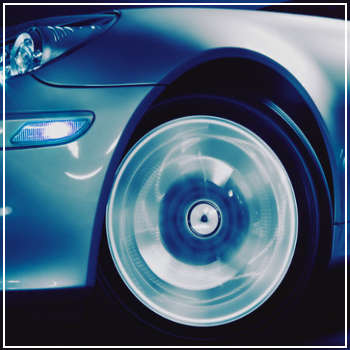How Long Should a Car’s Paint Job Last?
Unfortunately, there’s no straightforward answer. Some folks end up dealing with this issue just a few years after purchasing a brand-new vehicle. In some cases, these early rust spots could be linked to a defective paint application at the factory. A Canadian court case in the early 2000s brought attention to a significant disconnect between car manufacturers and consumers: Manufacturers believed the paint job should last five or six years under ideal circumstances, while the court ruled that a factory-applied paint job should last between 10 and 15 years. Ultimately, several factors can affect how long your car’s paint will hold up: the quality of the factory application, UV exposure, storage conditions, how frequently your car is parked outdoors, and atmospheric chemicals. In the late '90s and early 2000s, it was more common to see a car’s clear coat start flaking off, revealing the paint beneath. Although this issue is less prevalent today, it often stems from a subpar paint job. A poorly executed paint job can result in delamination, where the clear coat begins to bubble and peel due to incompatible paint and primer or because foreign substances like chemicals or particles got mixed into the paint. Improper drying times can also contribute to this problem. Rust primarily forms due to exposure to the elements and poor paint jobs that expose the underlying metal. Parking your car near ocean water or driving on recently salted roads in winter without rinsing off the residue afterward can accelerate the oxidation process. Similarly, scratches that reach the metal provide an entry point for rust to form and spread. From a paint application perspective, a shoddy job—whether done by a shop or yourself—won’t protect your car as effectively as it should, leading to premature rusting. Certain practices, like skipping body cavity wax and seam sealers, can invite rust because these coatings are meant to repel moisture and block corrosive materials like road salt. Simply put, the longer your car remains outdoors, the more it’s exposed to UV rays, weather conditions, and pollutants. Leaving your car uncovered gives these factors more time to degrade its surface over time. UV light is especially damaging: It generates excessive heat and breaks molecular bonds, causing the paint to lose its luster and potentially cracking plastic components. Even if you don’t have a garage, you can slow fading by covering your car with a tarp or temporary shelter and regularly waxing the surface. Despite what many believe, washing your car too frequently can actually harm it. Excessive washes within a short period can wear down the surface, gradually chipping away at the paint. By the time you realize it, your once-shiny car may look dull and lifeless. As a general guideline, wait at least a month before washing a freshly painted car. Paint needs time to cure and bond properly, so washing it within 30 days of a new application can prevent this from happening. When washing and waxing, be gentle. Use cold water and a soft microfiber towel to clean the surface, followed by another dry microfiber towel to remove all moisture right after. Be mindful of avoiding scratches and leftover residue during the process. Waxing should wait until at least 60 days after the paint application. For the best protection, start with authentic carnauba wax. For efficient auto painting services, turn to the experts at DaSilva’s Auto Body. Our state-of-the-art spray booths ensure high-quality results. To learn more or schedule an appointment, get in touch with us today. Single French Horn,F Key French Horn,Children French Horn,Single Horn ZhengOu Musical Instruments Co.,LTD , https://www.zomusical.com As winter rolls around, car owners often begin noticing small rust spots or a previously glossy paint job starting to lose its shine. Just how long should your car’s exterior paint last?
As winter rolls around, car owners often begin noticing small rust spots or a previously glossy paint job starting to lose its shine. Just how long should your car’s exterior paint last?Clear Coat Peeling
Rust Formation
Fading and Rough Spots
Over-Washing